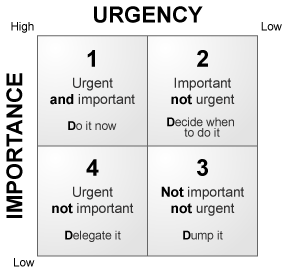
Let us see how to avoid such mistakes:
1. Reply All
This is one of those buttons that we like to hit so that everyone is kept in the ‘loop’, the problem is not everyone needs to be kept in the loop, nor do they want to be. It is fine to hit reply all, but be sure to edit the list of people that you are replying to so only those needed in the conversation stay in the email chain. If you are even in doubt about when to use reply all, don’t use it.
It is better to forward an email to someone later on then to waste 50 peoples time reading email that they don’t care about.
It is better to forward an email to someone later on then to waste 50 peoples time reading email that they don’t care about.
2. Emails with unwanted CC field
Let me tell you about the CC field, it is used to keep people in the loop that need to be kept in the loop. What it is not for is to be used as a way to show me that you are doing your job, or to ask me to do something. When I get an email that I have been CC’d in and somewhere in that message there is a task you want me to do – 90% of the time I miss that task.The reason is simple:I don’t read emails I am CC’d in past the subject line.
If you want someone to respond or act on an email you send ,make sure that he/she is in the ‘TO’ field.
If you want someone to respond or act on an email you send ,make sure that he/she is in the ‘TO’ field.
3. Adding JPG of My Company Logo
It is really awesome that you figured out how to embed your company logo in your email signature, but I know who you are and what your company logo looks like. Don’t waste bandwidth sending me email attachments of your logo.
Further it really irritates me when I go to look for emails that you sent me a file in – every email you send me has an attachment.
4. Lengthy contact information
We all have those fancy email signatures that include our contact information and maybe even a vCard, they definitely say our name and title. These are great for people who don’t know you, but when you are corresponding with other people in your office and regular contacts ,your first name will suffice.
5. Stop With the Cryptic Subject
We need to tell people what the email is about in the subject line, so that they know if they need to open it now or not. For instance instead of saying “Report”
as your subject how about put the actual subject in – “Please Review My TPS Report” so that I know whether to read that now or later.
6. Sending Large Files
Most people never look at the file size that they are sending to people, they just know that if it bounces back they can’t send it as is. I would ask that if your email is over 3mb please send me a file link so that I can download it faster.
There are many services out there that do this, many that are so fast and easy you will be amazed. Sending and downloading large files over email is not what the protocols were designed for, and they are agonizingly slow – help yourself out and use a service like Droplr, file sharing, etc.
7. Capitalization
If you send me an email in all caps I will assume you are yelling at me and take my damn sweet time responding. Likewise if you send me an email in all lowercase I will assume that you couldn’t care less about the email you sent; resulting in me taking my own time responding. Typos and grammar problems abound, but we all know how to properly capitalize an email, so don’t be lazy.
8. Keep It Short
It is really great that you like details, but I don’t have time for them. Tell me what I need to know and what you need from me.
Don’t waste my time asking about the weather or how business is going. Being concise in emails can often lead to people thinking that you don’t have the time for them – I am not talking about one line email responses (ala Steve Jobs), just say what you need to say in a clear and concise manner. This helps people better understand you and makes you look smart.
9. Legal Notices and Printing Notices
Drop the legal notice, it is just dumb amd makes you look paranoid. Drop the “be kind to the environment and don’t print this email” notices because it is just rude.
If I need to print the email I will, otherwise assume it is filed away on my computer never to be revisited.
10. Spamming people with dumb jokes that they might not appreciate
This is the biggest email irritation. I hate it when people I don't send email jokes to, keep sending me email jokes that they think are 'relevant' to me. If I send you regular emails including jokes, I have that kind of relationship with you and it is fine to respond accordingly. If not, it would be smart to take a hint and stop bothering me - smart people don't care for the hidden messages
and crude jokes under business-like headings. Understand your audience and mark them in accordingly.
(Source: An email received from a friend )




